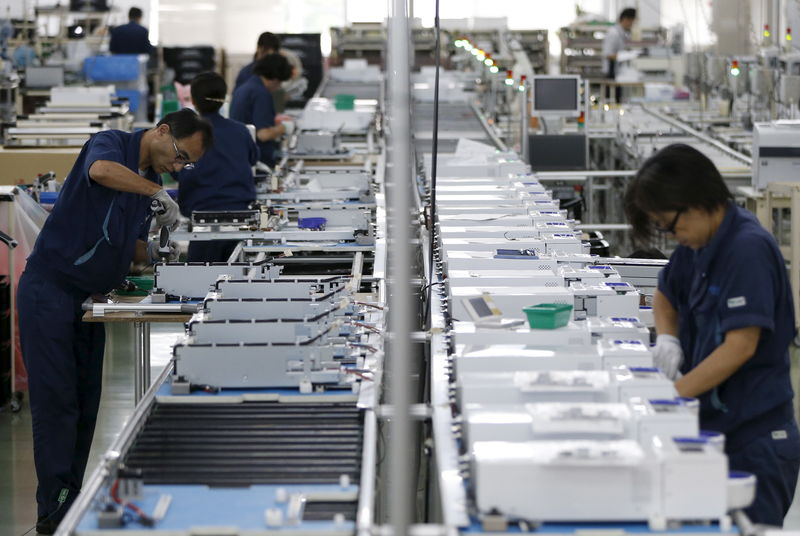TOKYO (Reuters) - Japanese manufacturing activity expanded in April for the first time in three months as companies hired more workers and grew more optimistic about the business outlook, a preliminary survey showed on Tuesday.
But the survey also showed new export orders fell in April at a faster rate than the previous month, in a reminder of the damage to Asia's exporters from the U.S.-China trade war and weak global demand for semiconductors.
The Markit/Nikkei Japan Flash Manufacturing Purchasing Managers Index (PMI) rose to a seasonally adjusted 50.2 in April from a final 49.2 in the previous month.
For the first time since January, the index swung above the 50 threshold that separates contraction from expansion, though the improvement was modest.
The pick-up "will be a welcome sign that the recent drop in momentum has potentially subsided for now," said Joe Hayes, an economist at IHS Markit, which compiles the survey.
"Given the difficulties faced by firms in semi-conductor and automobile-related industries in recent months, it bodes well that anecdotal evidence indicated that stronger optimism was in part driven by more upbeat forecasts for these two key Asian industries."
The index measuring employment suggested companies were creating jobs at the fastest pace since November, while optimism over the one-year production outlook rose to five-month high.
But factory output and overall new orders continued to shrink, albeit at a milder pace, while companies stepped up efforts to clear excess inventories, suggesting they do not see a near-term rebound in activity.
A gauge of new export orders fell at a sharper pace, dropping to 47.8 from 48.1 in March.
Operating costs continued to rise amid higher expenses for fuel, labor and materials, but companies were able to pass only some of the increases on to customers.
Data last week showed Japan's industrial output fell in January-March at the fastest pace in almost five years, suggesting the economy may post a mild contraction in the first quarter as manufacturers struggle with the U.S.-Sino trade war and a slowing Chinese economy.
The United States and China appear to be making progress in hammering out a deal to end the months-long trade dispute, but analysts caution it is unlikely to end Washington's more protectionist stance.
Japan is exposed to the dispute as it ships big volumes of electronics items and heavy machinery to China which are used to make finished goods destined for the United States.

Washington is also pressing Tokyo for a new trade deal to reduce its large trade deficit with Japan, and in particular is urging Japanese automakers to build more vehicles in the United States.